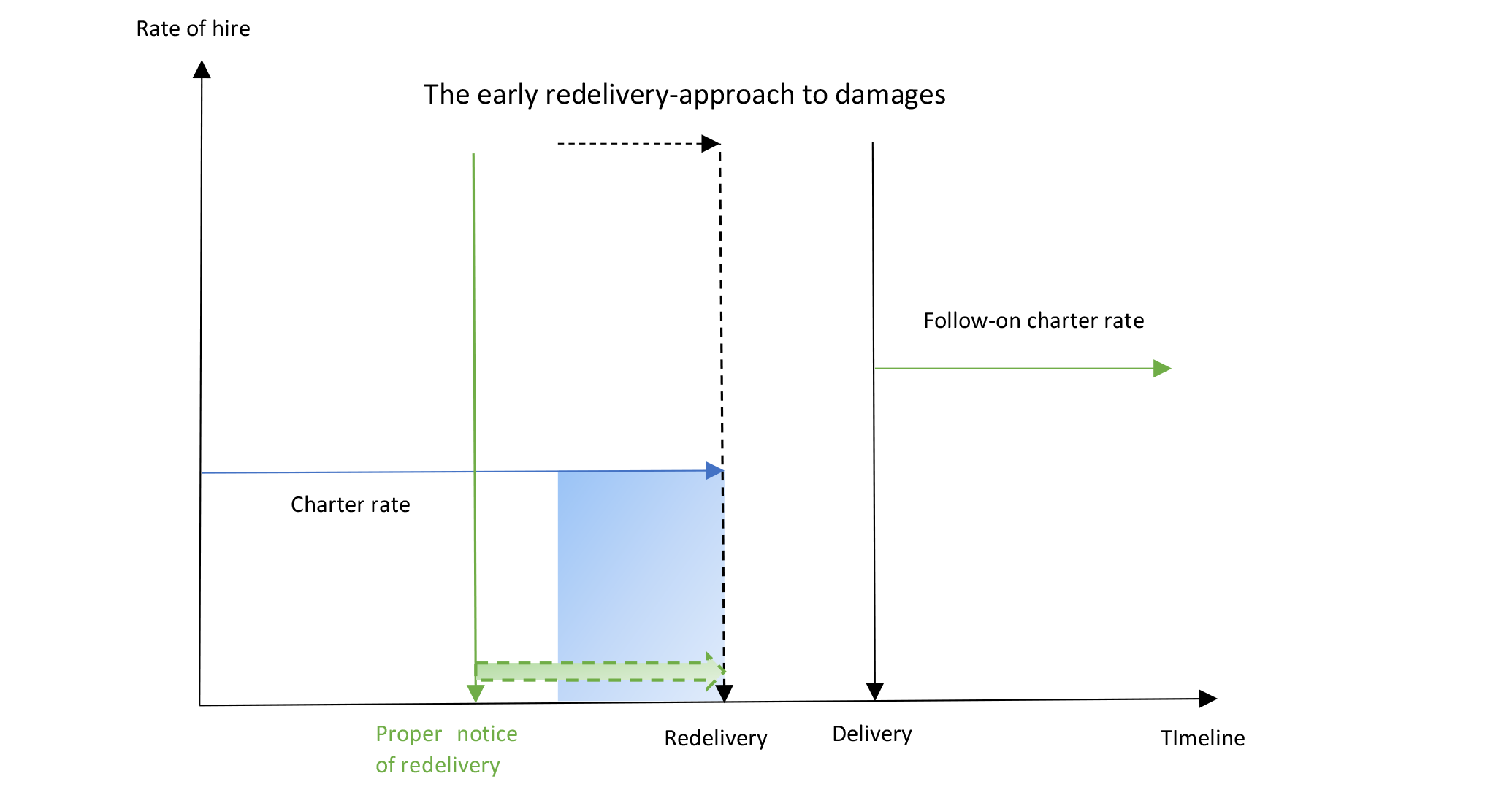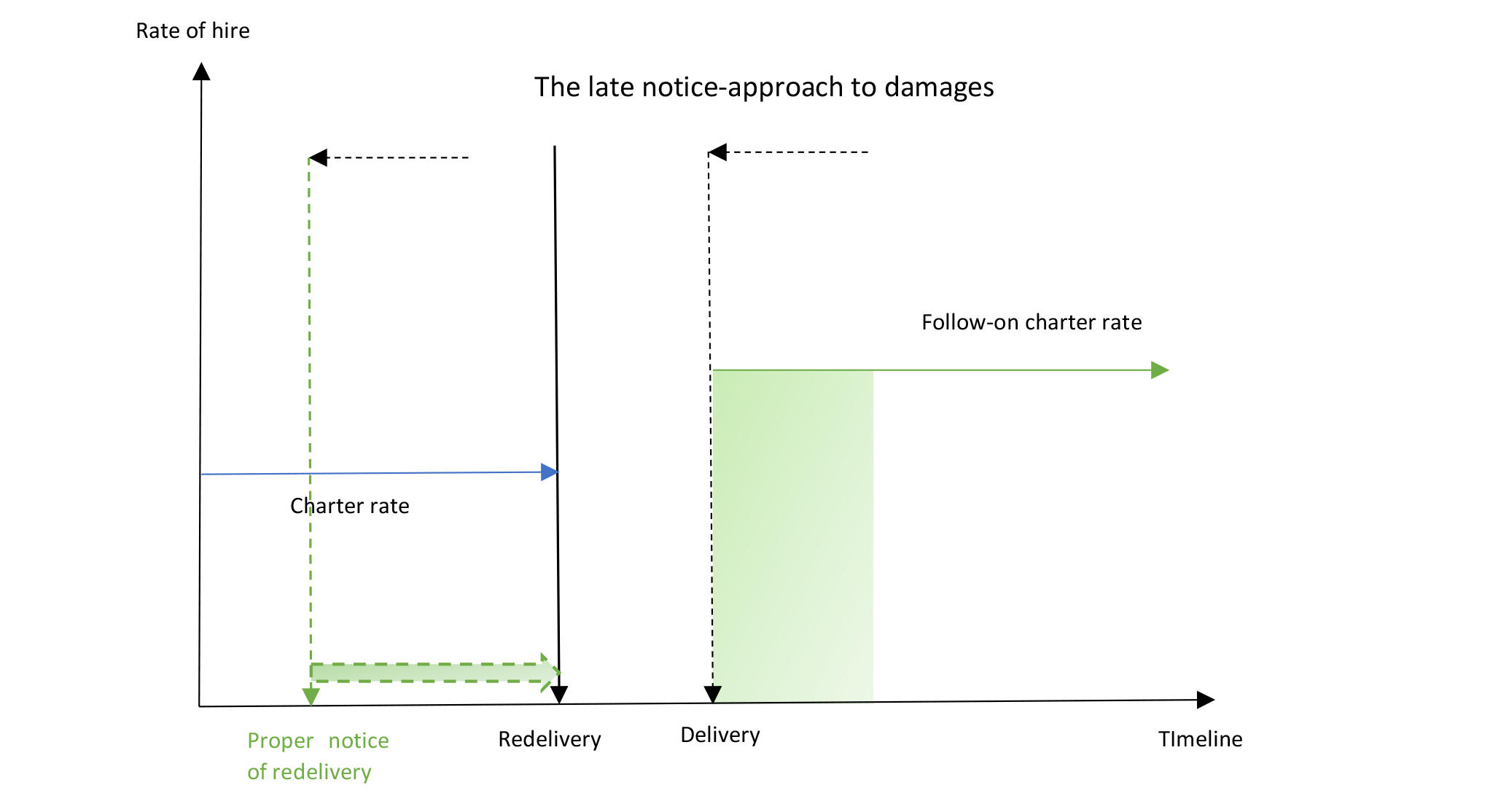1.1 Statement of problem
This thesis adopts as its point of departure the time charterer’s redelivery on short notice in contravention of the terms of the charter. Specifically, it engages with a known controversy regarding the correct perspective on the owner’s losses in an ensuing claim for damages.
Consider a time charter that requires 15 days’ notice of redelivery. Instead, the charterer redelivers on a short 3-day notice. The owner cannot refuse redelivery for that reason alone i.e., proper notice is not a condition precedent to redelivery.(1) Jantzen (1938), p. 411. ND 1952 p. 104. Gram (1967), p. 178. For English law see Coghlin et al (2014), ch. 15.14 and Carver (2021), 7–397. Note that the owner is required to accept redelivery even if it is premature in relation to the charter period itself, cf. NOU 1993: 36, p. 91. The owner must accept redelivery and bring a claim for damages. Damages ought to place the owner as if he had received proper notice. However, scholars and practitioners disagree on whether proper notice would have entailed earlier notice or later redelivery. Carver on Charterparties:
However, where a vessel is redelivered on short notice, it is a nice question whether the gravamen of the breach lies in the charterer’s failure to give a longer notice and thus to redeliver at a later date, or in its having failed to give notice at an earlier date.(2) Carver (2021), 7–400.
The aim of this thesis is to bring clarity to this question from a Norwegian law perspective.
The question is of practical note, most of all because it implicates the quantum of damages. We can illustrate this with an example. Assume that market rates at redelivery are up compared to the charter rate. Further assume that the owner’s follow on-fixture becomes delayed as many days as notice was late for reason of the late notice. Under those assumptions, the late notice-perspective yields the greater losses (figures 1 and 2 below). The question does not only concern the quantum, but also the nature of the owner’s losses. It is more intricate to prove a disposition loss from not having been given notice at an earlier time, compared to would-be extended charter hire inter partes in the missing days of the notice time. Owners might therefore generally favour the early redelivery-perspective.(3) Another reason to think so is that the charterer will be incentivized to redeliver on short notice when the market rate is down and the charter is expensive i.e., when the owner prefers to extend the period of hire. This point of view cannot be taken too far, however, as short notice redeliveries often occur due to a lack of time for the charterer to order the vessel on a commercially sensible last voyage, which may happen independently of the market conditions. In a specific litigation, however, an owner may still prefer to recover losses from not having been given earlier notice if the market conditions favour that approach, as in our example.(4) See also [2015] Lloyd’s rep 315 and 1955 AMC 875.

Figure 1. The illustration shows a hypothetical in which the charterer redelivers later in proper relation to the time of notice as it were. The dotted arrows indicate that a parameter has been altered, and the blue area represents lost charter hire as yielded by this perspective. For simplicity, the owner’s claim for bunker consumption is not shown in figures 1 and 2.

Figure 2. The illustration shows a hypothetical in which the charterer issues earlier notice in proper relation to the redelivery as it were. It is here assumed that the owner would be able to use that earlier notice to push forward the vessel’s following employment. The loss as yielded by this perspective is represented by the green area.